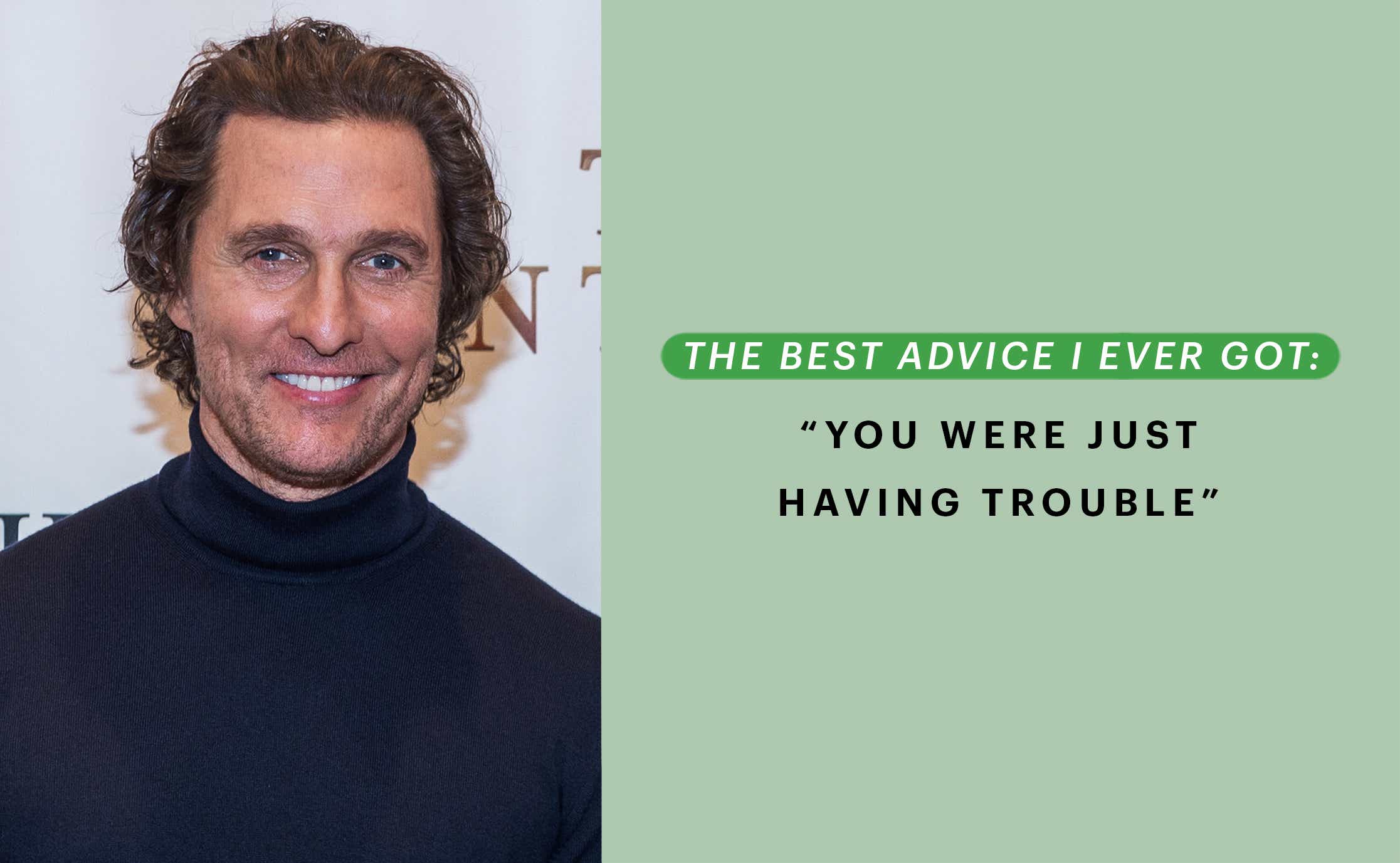At a time when we could all use a little inspiration, we’re looking back at Katie’s 2012 book, The Best Advice I Ever Got. In it, she examines her own experiences from the front lines of the worlds of politics, entertainment, sports, philanthropy, the arts, and business — and collects the ingenious, hard-won insights of countless leaders and visionaries. They tell us how to take risks, follow our passions, cope with criticism, and commit to something greater than ourselves. You’ll find thoughts from everyone from financial guru Suze Orman to Steven Spielberg to Christina Applegate to Maya Angelou.
Couric also reflects on the sage advice that has guided her, from her early days as a desk assistant at ABC to her groundbreaking role as the CBS Evening News‘ first female anchor.
Matthew McConaughey is a storyteller on and off-screen. He most recently published Greenlight, a memoir about his life in chronological order. And now he may be eyeing a political stint. When asked by Kara Swisher on the New York Times’s “Sway” podcast if he would run for Texas governor, he basically said it depends on how useful he would be as a politician. Hm…
To see inside his head a little more, read his advice in The Best Advice I Ever Got, where he gives you a sneak peek of his tone, life, and storytelling ability.
Matthew McConaughey‘s Advice
“You Were Just Having Trouble”
Growing up, my dad got mad at me for only two reasons: if I told a lie or if I said “I can’t.” It was easy to understand the “lying” part, but the “can’t” bit took a little longer to figure out. It was a Saturday morning in the summer of 1981, and I was twelve years old. I was up early to mow the yard so that I could have the afternoon free to play. I got the Snapper lawn mower out of the shed and tried to crank it up. I pulled and pulled the cord, but the lawn mower wasn’t turning over.
I checked the gas, set the choke, everything I could think of, but I still couldn’t get it started. I was exhausted. I was frustrated. I cussed at the mower and at the fresh blister that had formed on my palm from pulling the cord so many times. My dad came around from the front of the house. I’m not sure how long he was there or if he’d seen me trying to start that damn lawn mower.
What I do remember is our conversation. I remember it verbatim. He said, “What’s the problem, little man?” I said, “Dad, I can’t get this thing started.” I will never forget the look on his face as he slowly gritted his teeth and said, “You what?” “I can’t get this darn mower started, Dad!”
He looked at me and evenly but sternly said, “No, son, you’re having trouble getting that lawn mower started.” I said, “Right, I can’t get it—” “No,” he interrupted. “You’re having trouble.” “Yes, sir,” I said. “What’s the difference?” He said, “Look, son, don’t ever say you can’t do something. That means there’s absolutely no way to do it. If you can’t do something, how are you ever gonna fix something? How are you gonna figure the problem out? How are you gonna ask for help? You’re gonna have trouble doing a lot of things in life, but They can be done. If you say ‘I can’t,’ that means there’s no solution, you’ve given up, you’ve quit. But if you’re ‘having trouble,’ that means that even though you may not know at the time how to solve the problem, you know there’s a way — you’re just having trouble. Let’s figure it out.”
As he knelt down over the lawn mower, he found a loose gas line that was disconnected and wasn’t allowing gas to flow to the carburetor. We reconnected it, and after a few pulls the lawn mower started. We shook hands with a smile as I said, “Thanks.” “Sure, little man,” he said. “You were just having trouble.” This lesson has stayed with me to this day, and is one I’m passing on to my children. It has helped me work harder, solve problems, and not feel helpless in unfortunate situations. It’s given me patience with others and with myself, and, most of all, it leaves the problem open to being solved. Which, of course, always leads to a solution.









